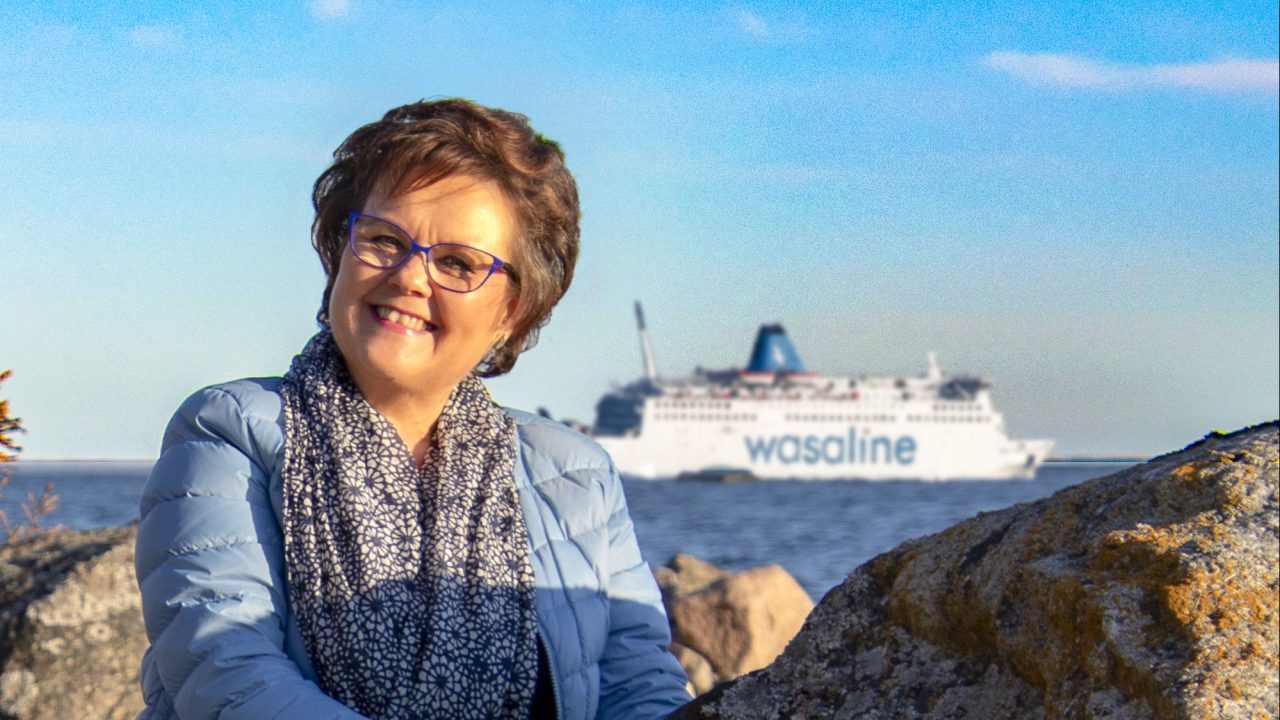"Seeing companies as part of society is important"

Entrepreneurship, community planning and communication within organisations have been the focus of the course entitled Cross-border regional development and planning in the Kvarken region. About 25 students have taken the course, which has given them a perspective on Kvarken as a region from a business point of view. Some of the topics covered were regional development, Nordic planning systems and companies, as well as language and culture, explains course coordinator Marit Nilsson-Väre.
“Through this course, the students create networks and contacts, both with students when working together in mixed groups and through concrete visits to the region. It is good for the students not only to think from the point of view of the business economy, but also to see how social planning and regional decision-making affect the companies’ activities from a broader perspective.”
By dividing the course into three modules: business, community planning, and communication, the students get a broad picture of business collaboration and of the challenges and opportunities for companies operating in the border area. Umeå University is responsible for the module on community planning, and Hanken for the other two modules, with Professor Peter Björk in charge of the module in corporate business, marketing and corporate profiling.
Marit Nilsson-Väre, lecturer in Finnish at Hanken, is responsible for the module on communication within organisations together with her colleague Marina Bergström, university teacher in Swedish. In this part of the course, the students learned about similarities and differences between the Finnish and the Swedish society, in the use of language and corporate culture. There are some differences in how people work in Sweden and in Finland, and it has been educational for the students to see these differences, says Nilsson-Väre.
“The meeting culture and the corporate culture in Sweden are different compared to Finland - in Sweden, you decide more together and discuss different aspects before making a decision. Also for me as a course coordinator, it has been instructive to experience and interpret these cultural differences.”
Useful knowledge in other contexts as well
The course is completely new at Hanken, and Nilsson-Väre hopes that the course will be offered again and that the concept will be used in other forms as well.
“We have created a concept that can be used also in other contexts, across other borders. After all, we have borders between different regions within the country, and a border with Russia. How can you work together across these borders, for example? This concept, which is about what you need to consider when collaborating across borders, can be used in many contexts”, says Nilsson-Väre.
The course included study trips across Kvarken, but the ongoing state of emergency in the wake of the corona crisis has affected the course and some trips were cancelled. The last meeting of the course was held virtually, and the planned company visits were conducted in the form of video interviews with representatives of the companies. The final group presentations were also held virtually.
“The virtual contact and presentations succeeded our expectations and the discussions were very enriching and good, despite the fact that we had two whole days of remote teaching and virtual presentations”, says Nilsson-Väre.
The course provided the students with new contacts, an understanding of how companies function in society and some general knowledge of cross-border activities. They learned how to analyse and discuss how differences in planning systems affect opportunities to carry out cross-border collaboration, and to identify differences in language, culture and marketing. They also learned how to create innovations in collaborative networks and business clusters.
“This is a course that broadens the mind, and gaining an understanding of companies as part of society is very important. Questions such as what benefits the companies have of being in the region they are in, how the region may benefit from the companies, and what regulations govern the operations of the companies are covered in the course. “In many ways, the course gives a very broad picture. When regional and municipal policies come into the picture, you realise that companies cannot carry on as they please and that there are many aspects that need to be considered”, says Nilsson-Väre.

